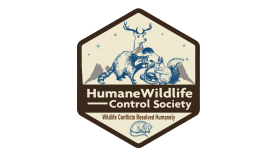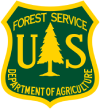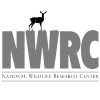Humane Wildlife Control in St. Petersburg, FL
The Humane Wildlife Control Society recommends non-invasive solutions to resolve human-wildlife conflicts. This includes:
Determining if the issue needs to be addressed at all
Opting for preventative measures first
Opting for wildlife exclusion as opposed to trapping
If trapping is the only way to solve the problem do so humanely
The Humane Wildlife Control Society screens candidates prior to recommendation. Our process requires any company we recommend to meet the following criteria:
Is properly licensed in Florida for wildlife control
Carries appropriate business licenses and insurance
Complies with all Florida laws and regulations for wildlife control
Adheres to the humane principles listed above.
In St. Petersburg, Florida we recommend Humane Wildlife Removal St. Petersburg for professional wildlife control services. This is a private company that charges for their services.
Contact Information:
St Petersburg Animal Exterminator
727-597-4563
If you have any wildlife issues that can be handled by the state government agency for free, the Florida Wildlife Commission can help.
State Contact Information: 888-404-3922
The State Department of Agriculture may also be able to address your wildlife problem for no charge.
USDA Contact Information: (800) 435-7352
Humane Animal Control in St. Petersburg, Florida: A Commitment to Compassionate Solutions I. Core Principles and Objectives: Public Safety: Ensuring the safety and well-being of St. Petersburg residents from animal-related hazards. Responsible Pet Ownership: Stray Animal Management: Community Workshops and Presentations:
The City of St. Petersburg is dedicated to responsible and humane animal control, prioritizing the well-being of both our residents and the diverse animal population that shares our community. Our approach emphasizes preventative measures, non-lethal interventions, and public education to foster harmonious coexistence.
Animal Welfare: Promoting the humane treatment of all animals within city limits.
Preventative Strategies: Minimizing animal conflicts through proactive measures and community education.
Non-Lethal Control: Utilizing humane exclusion, deterrence, and relocation (when necessary) as primary methods for addressing animal conflicts.
Regulatory Compliance: Adhering to all applicable local, state, and federal laws and regulations regarding animal control and welfare.
II. Preventative Measures: Reducing Animal Conflicts:
Mandatory pet licensing and vaccinations to ensure public health and animal safety.
Strict enforcement of leash laws to prevent animal bites and stray animal issues.
Promotion of spaying and neutering to control pet overpopulation and reduce stray animal numbers.
Education on proper pet care, including nutrition, shelter, and veterinary care.
Wildlife Conflict Prevention:
Public education on securing garbage and food sources to deter wildlife.
Guidance on eliminating potential shelter sites around homes and businesses.
Discouraging the feeding of wildlife, which can lead to habituation and increased conflicts.
Recommendations for landscape modifications to minimize wildlife attractants.
III. Humane Animal Control Practices:
Prompt response to reports of stray and abandoned animals.
Provision of temporary shelter and care for stray animals.
Active efforts to reunite lost pets with their owners.
Collaboration with local animal shelters and rescue organizations to facilitate adoption.
Wildlife Conflict Resolution:
Utilization of humane exclusion techniques, such as one-way doors and barriers, to remove wildlife from structures.
Employment of humane deterrents, such as motion-activated sprinklers and ultrasonic devices, to discourage wildlife from specific areas.
Relocation of wildlife only when necessary and in accordance with Florida Fish and Wildlife Conservation Commission (FWC) regulations.
Emphasis on educating residents about coexisting with local wildlife species.
Animal Cruelty and Neglect Investigations:
Thorough investigation of reports of animal cruelty and neglect.
Enforcement of animal cruelty laws to protect animals from harm.
Collaboration with law enforcement and animal welfare organizations to address animal abuse cases.
IV. Public Education and Outreach:
Providing educational workshops on responsible pet ownership, wildlife awareness, and humane animal control practices.
Informational Resources:
Developing and distributing brochures, pamphlets, and online resources on animal control and prevention.
School Programs:
Implementing educational programs in schools to teach children about animal welfare and responsible pet care.
Partnerships:
Working with local animal shelters, rescue organizations, and veterinary clinics to provide comprehensive animal care services.
The City of St. Petersburg is committed to fostering a community where animals and humans can coexist safely and harmoniously. We encourage residents to partner with us in our humane animal control efforts.







